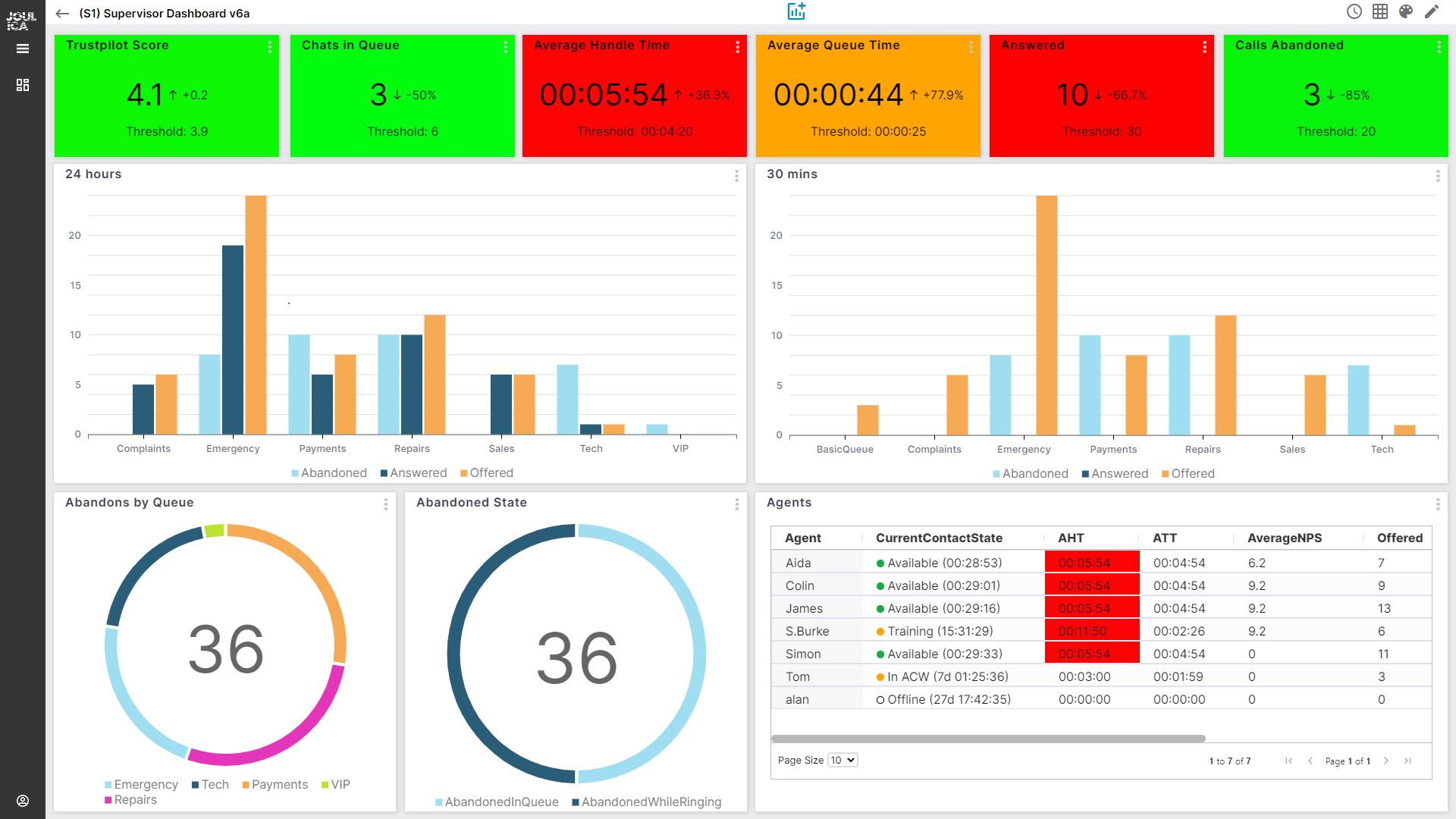Alternatives to CloudTalk
1. Amazon Connect
+Pros
- Usage-based pricing model eliminates per-seat costs .
- Rapid deployment capabilities through QuickStart packages .
- Seamless AWS ecosystem integration .
-Cons
- Advanced reporting capabilities often require external tools like QuickSight for comprehensive analytics .
- Complex routing requirements may exceed Amazon Connect's standardized capabilities .
One highlighted feature and why it's amazing
The platform provides comprehensive contact center functionality including intelligent routing, IVR automation, real-time analytics, and omnichannel support through a unified cloud interface .

Another highlighted feature of why it’s amazing
Delivers real-time agent assistance with customizable guardrails, enabling automated customer interactions while maintaining quality control .
2. Avaya
+Pros
- Hybrid deployment mastery enables seamless operation across on-premises, private cloud, and public cloud environments simultaneously.
- AI orchestration flexibility through the Infinity Platform allows integration of multiple AI engines without vendor lock-in.
- Proven operational improvements with Standard Focus achieving 50% reduction in contact handling time while maintaining under 1% abandon rates.
- Competitive entry-level pricing historically provided significant cost advantages.
-Cons
- Market positioning challenges from absence in Gartner's 2024 CCaaS Magic Quadrant.
- Native ecommerce integration gaps create implementation complexity compared to competitors.
- Implementation complexity variations range from weeks for basic deployments to months for comprehensive transformations.
- Limited customer evidence availability suggests either customer confidentiality preferences or restricted reference customer base.
One highlighted feature and why it's amazing
Enables businesses to integrate multiple AI engines simultaneously through the Infinity Platform (2025) without vendor lock-in.

Another highlighted feature of why it’s amazing
Integrates with Google Dialogflow CX to provide advanced contextual awareness and multi-turn conversation capabilities specifically designed for natural customer interactions.
3. Five9
+Pros
- Advanced AI automation capabilities through the Genius AI Suite.
- Cloud-native architecture supports rapid scaling and deployment.
- Omnichannel integration and real-time data access enable hyper-personalized customer interactions.
-Cons
- Integration complexity reported by 46% of users.
- Pricing constraints with $119/user/month starting prices potentially exceeding budgets for smaller ecommerce operations.
One highlighted feature and why it's amazing
Delivers three core automation capabilities designed to reduce agent dependency while maintaining service quality. AI Agents blend generative and traditional AI to resolve contextual queries like loyalty status inquiries and order tracking without human intervention.

Another highlighted feature of why it’s amazing
Allows adjustable AI autonomy levels, enabling organizations to customize automation from scripted responses to fully generative AI interactions based on business requirements and risk tolerance.
Other Alternatives
Genesys
RingCentral
Talkdesk
Vonage Contact Centre
Zendesk AI
How We Researched This Guide
About This Guide: This comprehensive analysis is based on extensive competitive intelligence and real-world implementation data from leading AI vendors. StayModern updates this guide quarterly to reflect market developments and vendor performance changes.
232+ verified sources per analysis including official documentation, customer reviews, analyst reports, and industry publications.
- • Vendor documentation & whitepapers
- • Customer testimonials & case studies
- • Third-party analyst assessments
- • Industry benchmarking reports
Standardized assessment framework across 8 key dimensions for objective comparison.
- • Technology capabilities & architecture
- • Market position & customer evidence
- • Implementation experience & support
- • Pricing value & competitive position
Research is refreshed every 90 days to capture market changes and new vendor capabilities.
- • New product releases & features
- • Market positioning changes
- • Customer feedback integration
- • Competitive landscape shifts
Every claim is source-linked with direct citations to original materials for verification.
- • Clickable citation links
- • Original source attribution
- • Date stamps for currency
- • Quality score validation
Analysis follows systematic research protocols with consistent evaluation frameworks.
- • Standardized assessment criteria
- • Multi-source verification process
- • Consistent evaluation methodology
- • Quality assurance protocols
Buyer-focused analysis with transparent methodology and factual accuracy commitment.
- • Objective comparative analysis
- • Transparent research methodology
- • Factual accuracy commitment
- • Continuous quality improvement
Quality Commitment: If you find any inaccuracies in our analysis on this page, please contact us at research@staymodern.ai. We're committed to maintaining the highest standards of research integrity and will investigate and correct any issues promptly.